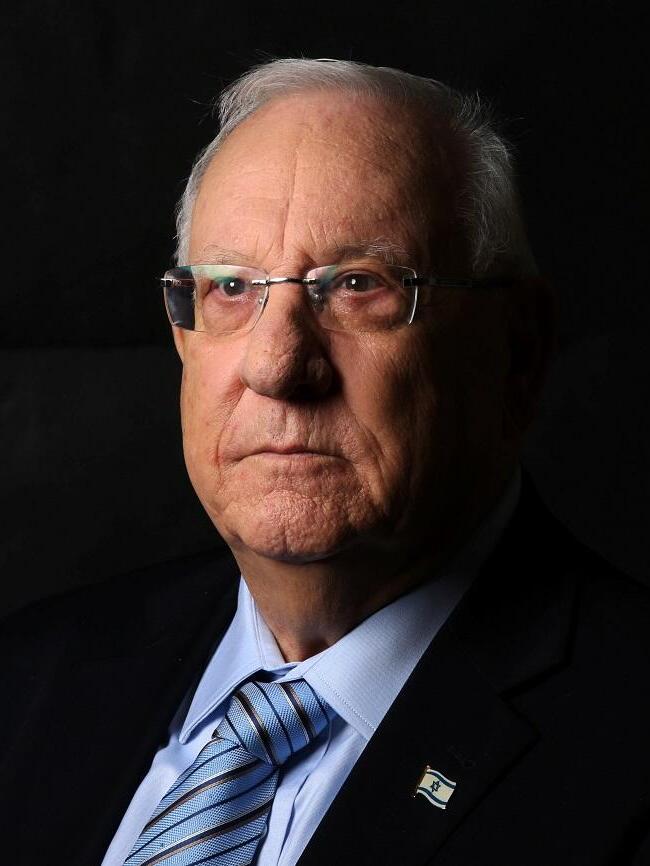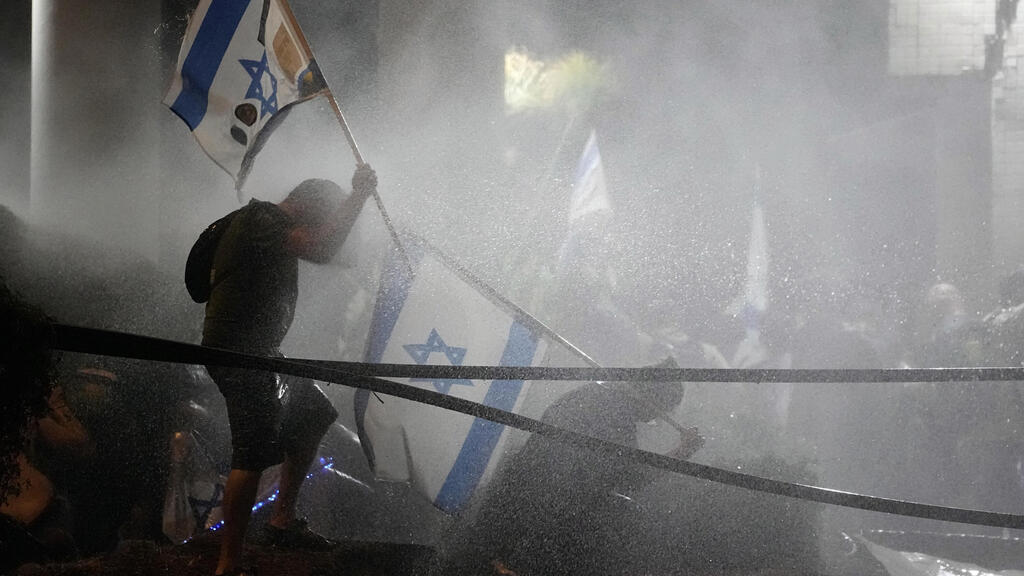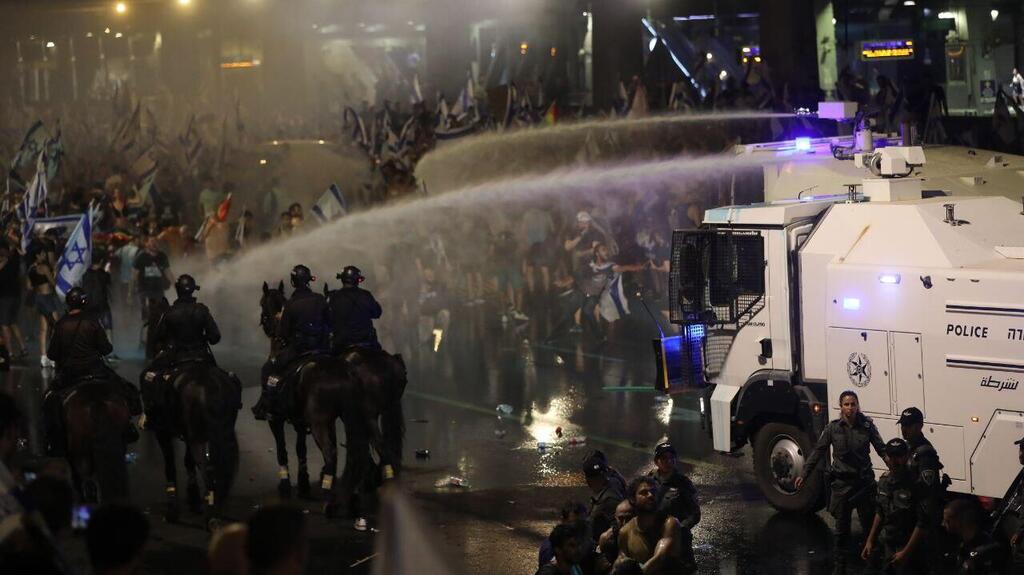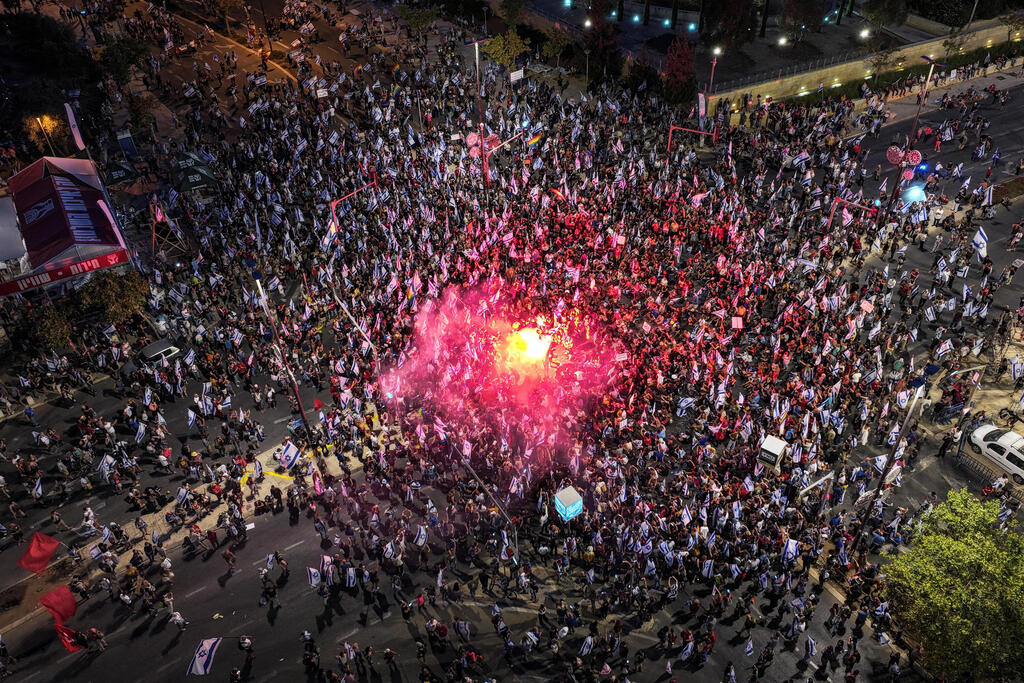We tend to think only about the present, but Israel has known harder times than these. Menachem Begin's command, calling to avoid civil war at all costs, was given after the sinking of the Altalena in which many perished.
More stories:
In contrast, even during the days of the disengagement from Gaza, when right-wing leaders decided to stop the tens of thousands marching from Kfar Mimon into Gaza, they knew the price of their “concession” from the start.
In real-time and from a historical perspective, Israel held firm. With this, we showed each other that we accept certain rules the games should be played by, understanding that the price of a full-scale confrontation could be even more dangerous.
In the absence of any agreed-upon rules of the game, loss of trust is much harsher and more dangerous – it may lead us to the "point of no return," that dreadful scenario from which there’s no way back.
Here are two examples illustrating the loss of trust: Firstly, in the eyes of a very wide public, law enforcement's handling of the protests against the judicial overhaul isn’t similar to their handling of protests against the disengagement plan, or protests by ultra-Orthodox, Israeli-Arabs or Ethiopian Jews in recent years.
Ask yourselves an honest question: Were Haredi demonstrations in Jerusalem broadcast live on TV, reporting every minute detail about police conduct in the protests? Did we listen to accusations of police brutality against protesters then?
Secondly, the frantic way in which the Knesset legislates and amends Basic Laws and the constitutional framework enacted in the last 25 years erodes any ability to debate and decide on essential constitutional questions.
Indeed, were we not shocked when Basic Laws were changed for political needs, sometimes to increase the number of acting ministers, sometimes to create a rotation in the prime ministerial position and sometimes to form a rotation government?
If your constitutional change is deemed legitimate, but my constitutional change is a non-starter, and if your violent protest is a legitimate democratic demonstration, where all detained protestors are released, whereas my violent protest is a criminal act of rebellion, with dozens arrested even before it starts and hundreds arrested by its end – then we have no rules to play by, and the point of no return is growing closer.
Therefore, before we argue or even agree to hold honest dialog, let's first agree on the rules to which we must abide. Let's hold firm as we did in the past.
When each side is convinced that the police work for the other side - let's establish legal agreements on the right to protest and its limits, on what’s allowed and prohibited in a demonstration and primarily on uniform standards of law enforcement.
When the core issue of constitutional laws, including the concept of separation of powers and the interaction between them, is disputed, let's at least establish procedural agreements (supermajority, safeguards to Basic Laws, special legislative procedures, etc.) for the Basic Law: The Judiciary so that we can better manage the debate.
Even in days when we were most divided, during the Oslo Accords or the disengagement from Gaza, we sat in the Knesset as rival members of parliament and managed to reach agreements, sometimes only on procedures but often also on important decisions.
Political rivals like Yitzhak Levy, Moshe Shahal, Dov Khenin, Aryeh Eldad, Mohammad Barakeh, Uri Ariel, Chaim Oron and even myself, as well as many other good people, reached agreements without giving up our ideological positions.
Perhaps a "rule forum" is needed, a group of former politicians who know how to communicate and negotiate with the opposing political side, even during times of deep divisions.
 Reuven RivlinPhoto: Amit Shaal
Reuven RivlinPhoto: Amit ShaalTogether with a group of seasoned jurists (from the Knesset, government offices and even research institutions), who specialize in shaping political procedures into legal tools, this forum could help all of us crawl back from the edge.
Such a forum would not deal with ideological decisions, but only with the rules according to which things should be held; it wouldn’t produce reports no one reads, but would prepare 2-3 practical legislative proposals that would help bring us back to common ground before it’s too late.
Reuven Rivlin has served as Israel's 10th president.




